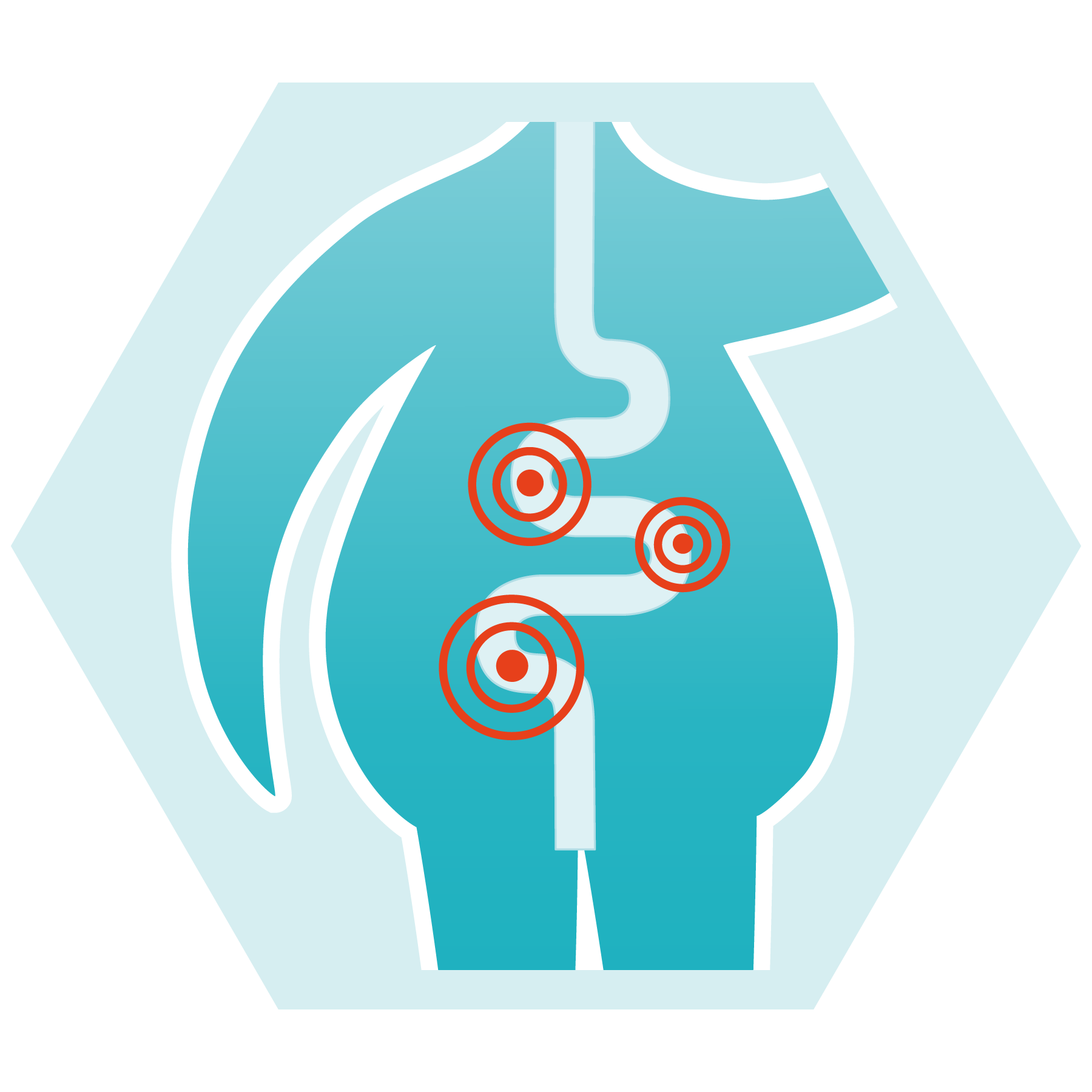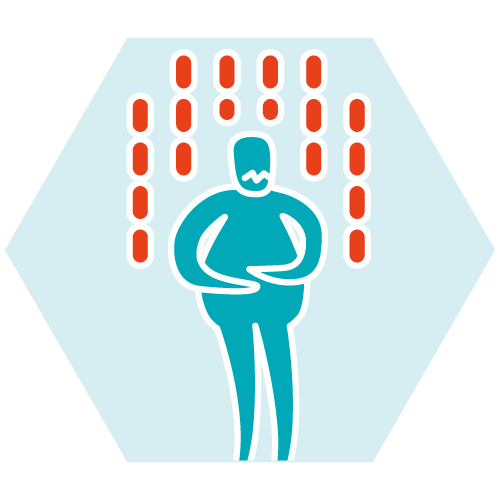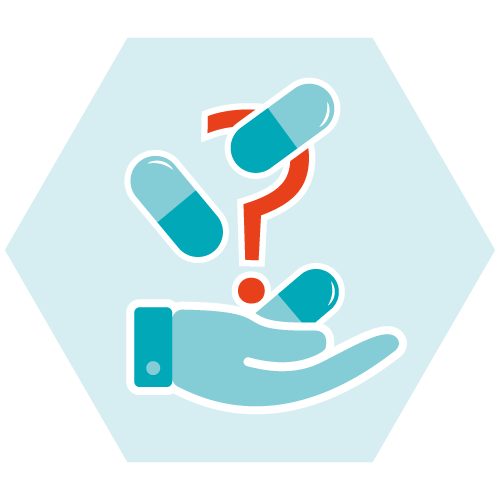About IBD

Inflammatory bowel disease (IBD)
IBD comprises a group of chronic disorders of the gastrointestinal tract. Each form of IBD affects different parts of the digestive tract, but all cause painful, recurring inflammation of the affected organs. The two most common forms of IBD are ulcerative colitis and Crohn’s disease.

IBD drastically impacts the quality of life
Chronic inflammation of the digestive organs caused by IBD damages their internal tissues. This impairs the functioning of the organs, and leads to debilitating symptoms, such as stomach-ache, tiredness, diarrhoea, rectal bleeding and in some cases colon cancer. These symptoms affect people's work and personal lives and can lead to depression.

IBD affects 6.8 Mio. people, and the number is rising
Worldwide, more than 6.8 million kids and adults suffer from IBD, including up to 3 million Europeans. The disease mainly affects individuals in industrialised countries and with urban lifestyles. The number of IBD cases has, thus, increased steadily with growing industrialisation and urbanisation. This trend is likely to continue with over 8 million cases expected by 2025.

A disease without known cause and effective cure
The cause of IBD is yet unknown. Scientists and doctors suspect a combination of genetic predisposition, a dysregulated immune system, and environmental factors. These factors include antibiotic usage, smoking, or an unhealthy diet. There exists no effective cure for IBD. Hence, its treatment is to alleviate the symptoms and prevent them from recurring. This can involve a change in diet and lifestyle, taking medication, but also the surgical removal of affected regions.

